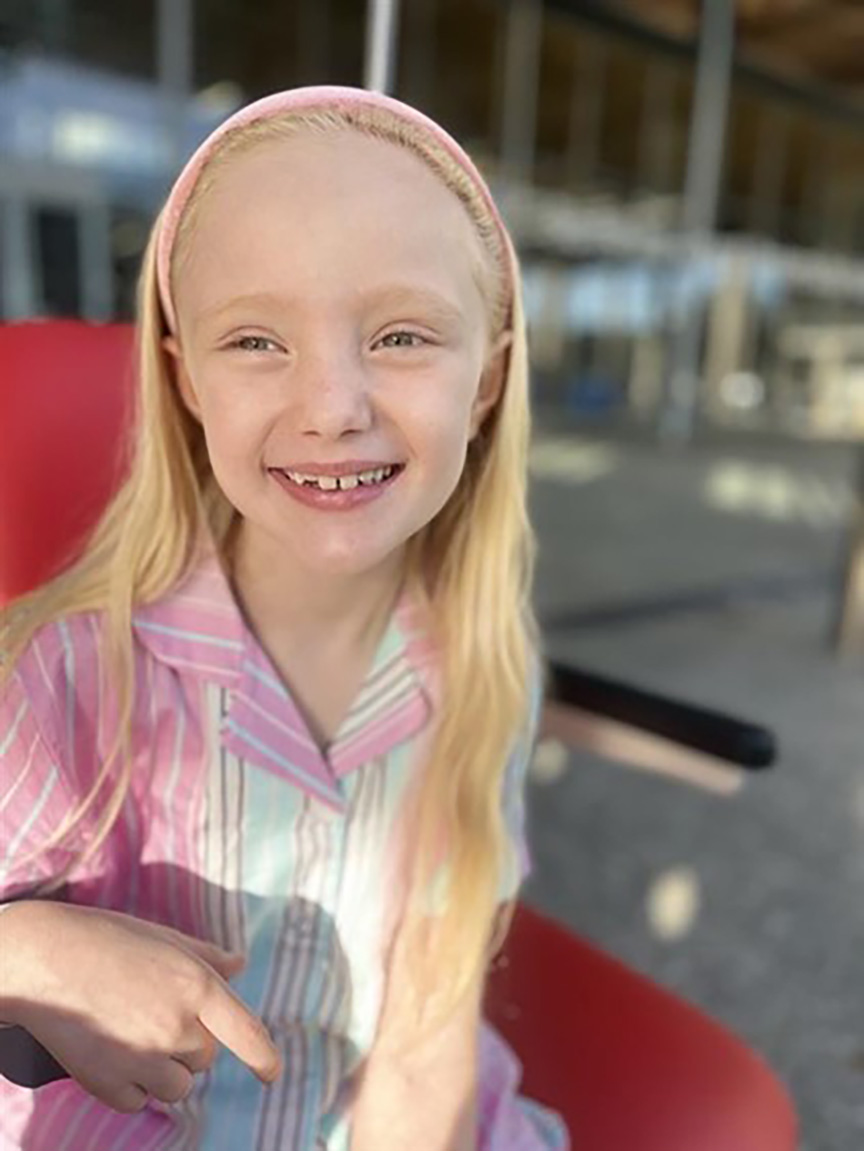
A black belt in martial arts, Delilah is an active eight-year-old. She loves to learn, dance, ride her bike and experience new things. One of those new things was riding her skateboard.
In March 2024, Delilah fell off her skateboard and bumped her knee. At first, it seemed like it was a sprain with no cuts or abrasions, but as Delilah’s mum Charlotte described, her condition quickly deteriorated.
“A few days after the fall, and still struggling to walk, Delilah started developing a fever, was lethargic and very unhappy. She also couldn't bear weight on her leg or straighten it out and was in agony if anyone attempted to touch or move her leg,” she said.
“Given her temperature and high levels of pain, I took her to the GP, after previously visiting the hospital where her X-ray came back clear of breaks.
“Not expecting or understanding sepsis, I thought a trip to the GP was the best option at the time, but we were referred to the hospital, with the GP being the first person to say the word Sepsis.”
Sepsis occurs when the body is fighting an infection but instead of healing, it starts to injure its own tissues and organs. Sepsis can develop following bacterial, viral, or fungal infections, with kids more at risk of sepsis.
Symptoms can include cold skin, high temperatures, pain, a rash that doesn’t fade when pressed, floppiness, blotchy, blue or pale skin, seizures, changes in toileting, eating or drinking, irritability and/or difficulty breathing.
Following Delilah’s diagnosis for septic arthritis in her knee, she spent almost three weeks in hospital, undergoing two surgeries to flush the joint, and was prescribed antibiotics to manage the infection.
The extended stay in hospital meant Charlotte and her husband had to manage the care of Delilah, along with that of her younger brother, Jack, and work commitments.
“It meant trips back and forth to the hospital, and having very late nights and early finishes, so we could be there to support Delilah as best as possible,” Charlotte said.
“But for all the unpleasant things like blood tests and surgeries, there were also plenty of opportunities to smile thanks to wheelchair rides, clown doctors, school within the hospital, babychinos, visits from friends, and even Delilah's teacher.”
Since her surgeries and treatment, Delilah has made a full recovery and is back to doing what she loves.
Delilah returned to school on crutches, but after ongoing physio and endless encouragement, she has returned to full PE classes, and is hoping to soon return to her martial arts classes on weekends.
“She has the scars on her leg and is self-conscious about how the hair has grown back on her knee from where she had it shaved. We used to giggle about how it was spikey for a while like her dad’s face when he shaves,” Charlotte said.
“I watched her do a cartwheel for the first time recently and I nearly had a little cry to myself. I know this might not be the case for other children, so I felt sad, but I also felt huge relief for her because she was incredibly brave.”